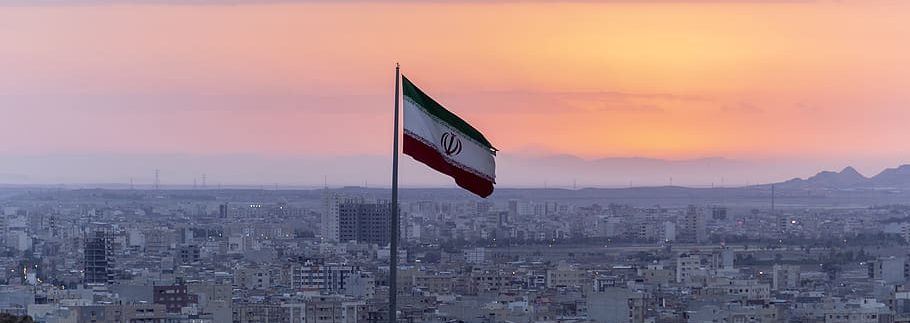The Middle East is slipping into catastrophe
The Middle East is slinking towards catastrophe.
Picture the scene: it was a bright and sunny afternoon, and I had just finished writing my article for The Boar. I decided to reward myself with a trip to the pub, to catch up with some old school friends, where we ended up discussing a swathe of political issues, including the implications of the Israeli strike on Iran’s consulate in Syria. Most of us concluded that whilst Iran would retaliate in some capacity (maybe a strike on an American base in Iraq), the response would hardly be sufficient in sparking a broader dispute.
It is clear the region is now only a few blunders away from a wider conflict
That consensus was shattered a mere couple of hours later, when a BBC notification popped up on our phones, declaring: “Iran launches drones at Israel in retaliatory attack”. In many ways, this sums up the Middle East to a tee, with the geopolitical undercurrents twisting and turning at a moment’s notice. It is clear the region is now only a few blunders away from a wider conflict, with the scope for misperception and miscalculation at an all-time high.
Iran’s attack was reckless, but they are clearly not seeking all-out war. Indeed, the Iranian regime never probably intended to cause serious damage or casualties, as they gave sufficient warning of their intentions to Washington, as well as several other European and Arabian capitals. Furthermore, Tehran would not have used slow-moving drones which took hours to reach their targets, and Hezbollah would surely have some involvement. Instead, the Iranian regime wanted to draw new red lines in its long-running conflict with Israel — which it arguably has done.
Now the initial hullabaloo has abated, the question turns to where the Middle East will go from here. In the short-term, Israel’s response will be the decisive factor in determining the likelihood of full-scale conflict. At the time of writing this article, the Israeli government seems resolved to respond in some capacity, with UK Foreign Secretary Lord Cameron stating that Israel is “making a decision to act”. However, it is difficult to predict what the exact nature of the response will be.
It is unclear whether Israel can retaliate effectively, without risking all-out war and angering their allies
In fairness, the Israeli government has been put in a difficult position: if Iran is allowed to directly strike other countries without impunity, this will change the rules of the Middle East, and set an extremely dangerous precedent. But it is unclear whether Israel can retaliate effectively, without risking all-out war and angering their allies.
There is hope from some quarters that Israel will act with restraint. This is because one of the unintended consequences of the strike was to essentially end Israel’s international isolation, in virtue of the ongoing conflict in Gaza. The United States and Jordan shared military intelligence (albeit openly provided by Tehran), and contributed military assets along with the United Kingdom and France. If it wants to preserve this fragile coalition and goodwill, Israel has to avoid escalation. For this reason, Binyamin Netanyahu, Israel’s prime minister, may refrain from ordering strikes on known nuclear sites in Iran, seen as the ultimate escalation. A cyberattack could be on the cards, because such an operation would likely be regarded by the US — and probably by Iran — as a mild enough response to discourage further Iranian escalation. However, because Israel has launched cyberattacks against Tehran previously, Netanyahu and the Israeli military may see this as a return to the status quo, rather than a deterrent. A high-profile assassination would also be difficult to organise quickly, but if Israel opts for a “delayed response”, it might be a realistic possibility.
This poses an existential threat to Israel, the Middle East and the rest of the world
Nonetheless, direct strikes on Iran are still on the table, in spite of pressure from Israel’s allies. Military analysts say Israel has an intermediate-range missile, the Jericho-3, with a reach of up to 4,000 miles, which can be used. This would be seen as a sufficiently deterring move by Israel, and although it risks further escalation with Iran, not to mention threatening Israel’s renewed international support, it may be a risk Netanyahu is willing to take.
In the long-term, the most serious threat to the prospects of peace in the Middle East is the production of nuclear weapons by Iran. The regime has never been closer to accelerating its nuclear weapons programme, which would be catastrophic for the region, as Tehran would have the means to wipe out millions. There is also the risk of further nuclear proliferation, because Saudi Arabia, Turkey and Egypt will all feel the need to establish their own nuclear arsenal to sufficiently deter Tehran. If the Iranian regime feels increasingly threatened, a nuclear Iran may come into fruition.
This poses an existential threat to Israel, the Middle East and the rest of the world. But, in the immediate future, the fate of the region hinges on what Israel does next. In order to forestall further escalation, Israel should exercise caution and play a longer game, and diplomatic efforts from the US, as well as the Gulf States, are paramount. The entire security of the Middle East is balanced on a knife’s edge.

Comments